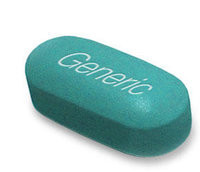A parliamentary panel is proposing that the Indian Government should bring in legislation that would make it compulsory for doctors to prescribe only low cost generic drugs.
The Parliamentary Standing Committee on Commerce announced on 13 August 2013 that it had ‘recommended strongly that the government bring in legislation to make it legally binding on all doctors to prescribe only generic drugs in their prescriptions’.
The committee argues that there is huge variation between the prices of brand-name and generic medicines and that ‘the out-of-pocket expense on healthcare is too high’. Out-of-pocket expenditure for healthcare in India is 78% of total expenditure on healthcare. The committee adds that making prescribing of generics compulsory would ‘ensure that [medicine] is affordable.
A bill is being drafted which will make sure that a list of generic medicines and combination drugs are available in all districts and it is prescribed by doctors. The aim is not to bring an end to brand-name medicine. The bill is intended to ensure that both generic and brand-name medicines are available on sale side by side.
Although India is one of the world’s largest exporters of generics, exporting to over 200 countries, its domestic market for generic drugs is small. The latest bill, along with an ambitious programme for providing free generic medicines to the poorest, is intended to address this imbalance.
India is coming down hard on drug prices. India’s Directorate of Food and Drugs Administration introduced new drug pricing controls in May 2013 to regulate the prices of 652 medicines using a market price-linked cap for each drug. These controls are expected to lead to price reductions of up to 80% in ‘essential drugs’ [1].
The Parliamentary Standing Committee on Commerce has also suggested the introduction of a ‘blanket ban’ on foreign investments in existing pharmaceutical projects. This is due to concerns about changes in the business models and marketing strategies of Indian companies once ownership of generic drugmakers has been put in the hands of multinational firms. According to the committee, since 2006–07, seven domestic pharma companies were acquired by foreign players ‘at highly over-valued prices’.
Related article
India plans further cuts to drug prices
Reference
1. GaBI Online - Generics and Biosimilars Initiative. India introduces new drug pricing control [www.gabionline.net]. Mol, Belgium: Pro Pharma Communications International; [cited 2013 Aug 30]. Available from: www.gabionline.net/Policies-Legislation/India-introduces-new-drug-pricing-control
Permission granted to reproduce for personal and non-commercial use only. All other reproduction, copy or reprinting of all or part of any ‘Content’ found on this website is strictly prohibited without the prior consent of the publisher. Contact the publisher to obtain permission before redistributing.
Copyright – Unless otherwise stated all contents of this website are © 2013 Pro Pharma Communications International. All Rights Reserved.








 0
0











Post your comment